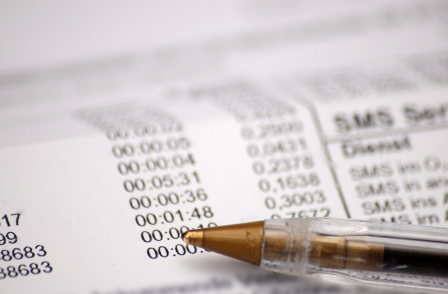
The news that the police secretly obtained the phone records of journalists to out their sources was revealed by the police themselves in the Operation Alice closing report into the Plebgate affair on 2 September.
A throw-away line on page 31 of the report said: "The telecommunications data in respect of Tom Newton Dunn was applied for and evidenced."

And on page 34 it revealed:
As a result of this information from the IPCC, an application was made for records of incoming calls to The Sun news desk number (020 7782 4100) for the period 7:30am-9am. This application produced five telephone numbers, all of which were researched for connections with the MPS.
The telecoms logs helped identify three police officers involved in leaking information about the Plebgate incident. All three were sacked, even though the CPS found they had no case to answer and there was a public interest in their revelations.
Newton Dunn refused to tell the police who his source for the Plebgate front page was, alleging then chief whip Andrew Mitchell had called police 'fucking plebs', so the police simply secretly obtained his mobile phone records and found the source that way.
On 3 September, the Met revealed that the records were obtained under the Regulation of Investigatory Powers Act 2000 (which requires internal approval) rather than the Police and Criminal Evidence Act (which requires application to a judge).
The Met is “not prepared to discuss” whether it has made any other such requests involving journalists.
They said that: “RIPA was the most appropriate and lawful means of obtaining this data”. In effect, their opinion appears to be –
'there's nothing to see here'.
The Sun has asked the Interception of Communications Commissioner's Office how many times RIPA has been used against journalists.
He is the watchdog who oversees the use of RIPA.
In response to a number of media requests, May’s office put out a lengthy statement on 4 September.
The IOCCO said RIPA could only used to detect criminality, rather than just for internal disciplinary reasons. So the Met may have breached the law by using it against whistleblowers who never faced trial. But this is by no means clear. You can’t tell whether or not someone has committed the crime until you have assembled the evidence.
Public authorities made more than 500,000 RIPA requests for telecoms data last year according to the IOCCO.
But it said: “We…do not hold information concerning the detail of individual applications submitted by public authorities.”
Some watchdog.
And it also helpfully pointed out that it is not covered by the Freedom of Information Act.
He said it is holding an investigation into “whether there might be institutional overuse by police forces and law enforcement agencies of authorisations to acquire communications data”.
But don’t hold your breath on that one. The IOCCO told Press Gazette that this inquiry was first announced in February and it won’t report until the IOCCO annual report is published next April. This is the same annual report which contains no information about the number of times RIPA is used against journalists.
Press Gazette also obtained a statement from the Association of Chief Police Officers about the use of RIPA against journalists.
Again, they give every impression that it is absolutely normal and that,
'There really is nothing to see here'.
They said: "Where it is necessary for the purpose of preventing or detecting crime or preventing disorder, the police will use the power given to them by RIPA to obtain and disclose communications data."
It emerged this week that the Bureau of Investigative Journalism is seeking intervention from the European Court of Human Rights on the surveillance of journalists. Its legal action was prompted by the Edward Snowden revelations about GCHQ spying on emails and concerns that there are no safeguards to protect journalists and their sources. It could lead to a change in UK law to protect journalists from action under RIPA.
As far as we know hundreds, if not thousands, of RIPA requests could be made against journalists every year. Not just by the police, but by other law enforcement agencies and local authorities. The unauthorised disclosure of information by a public employee to a journalist is potentially the crime of misconduct in a public office, so this could public authorities all the excuse they need.
Email pged@pressgazette.co.uk to point out mistakes, provide story tips or send in a letter for publication on our "Letters Page" blog
